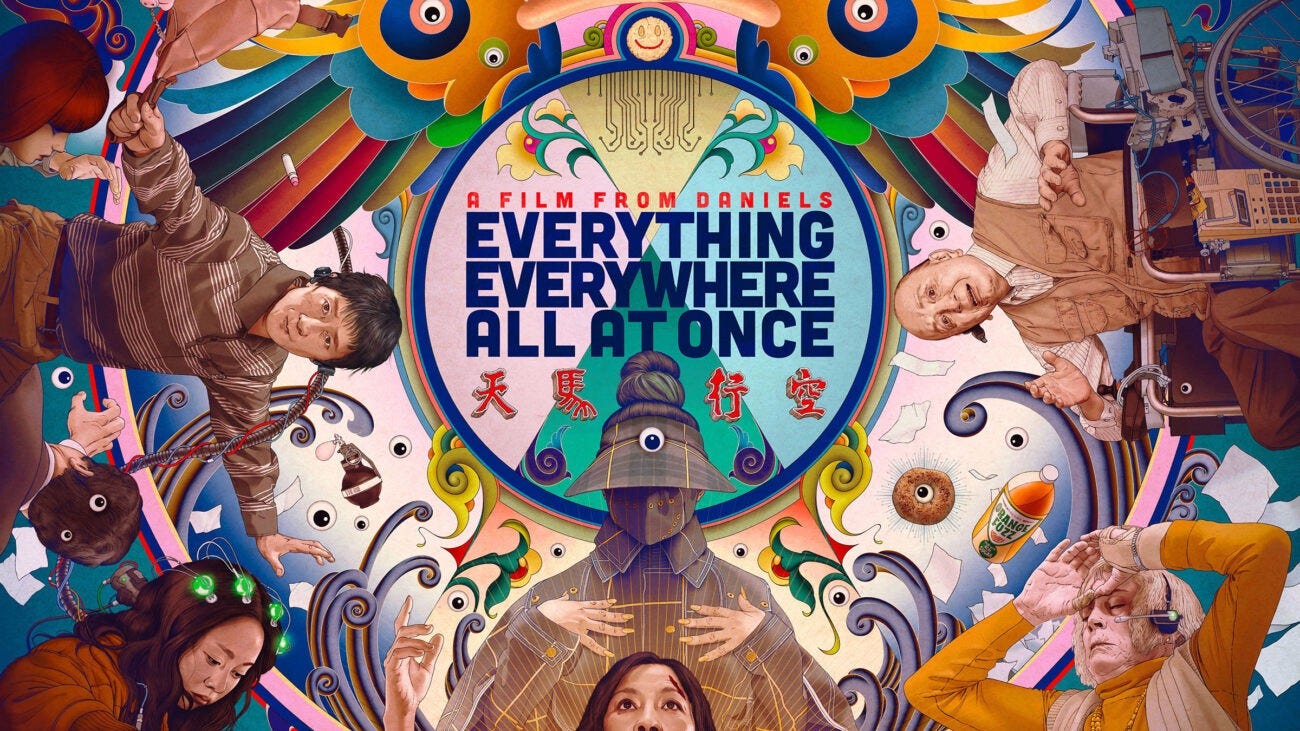And the winner is: Everything Everywhere All At Once
I found it truly hard to choose between contenders for the Oscars this year. I am angry and sad about films, filmmakers, and performances that were overlooked. But I am still deeply satisfied about the smash success of Everything Everywhere All At Once.
As a writer I admire EEAAO for using techniques of other media like gaming and TikTok to expand the bo…
Keep reading with a 7-day free trial
Subscribe to Screenwriting Tricks for Authors to keep reading this post and get 7 days of free access to the full post archives.




